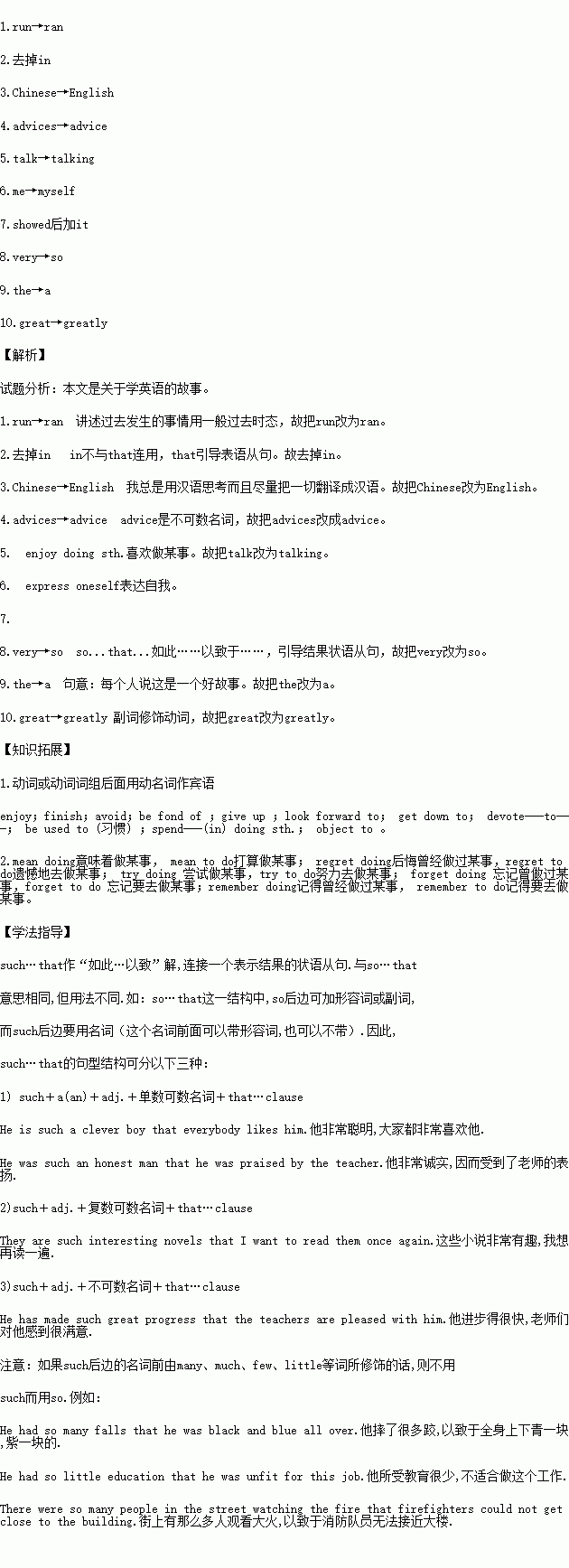题目内容
假定英语课上老师要求同桌之间交换修改作文,请你修改你同桌写的以下作文。文中共有10处错误,每句中最多有两处。错误涉及一个单词的增加、删除或修改。
增加:在缺词处加一个漏字符号(Λ),并在其下面写出该加的词。
删除:把多余的词用斜线(\)划掉。
修改:在错的词下划一横线,并在该词下面写出修改后的词。
注意:
1.每处错误及其修改均仅限一词;
2.只允许修改10处,多者(从第11处起)不计分。
When I first learned to write in English, I run into many difficulties. The main problem was in that I always thought in Chinese and tried to translate everything into Chinese. My teacher advised me to keep diaries. I followed her advices. Happily it worked. Soon I began to enjoy talk to myself on paper as I was learning to express me in simple English. One day I wrote a short story and showed to my teacher. She liked it very much that she read it to the class. Everyone said the story was the good one. I was great encouraged by their words.
练习册系列答案
相关题目

